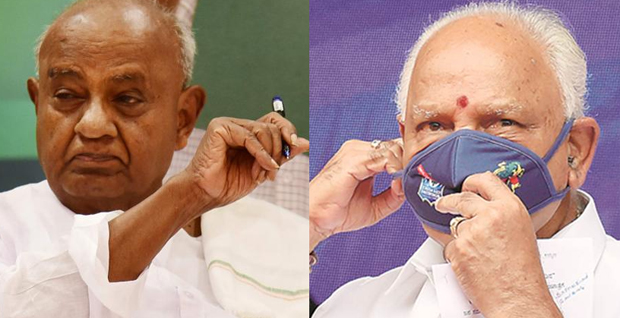Mangaluru: Jamiyyatul Falah, a state government award winning charity organization, and Green View Primary, High School and College celebrated Green-Fest Annual day-2018 on Sunday, 30 December 2018 from 10:30am. at Green View sports ground at Adkare Padpu, Konaje, here.
Annual Day forms an integral part of our school activities. It is an occasion of celebration, felicitation, feast and festivity when students present not only their wonderful performances but also receive honours for their curricular and co-curricular achievements. It is a joyous occasion, which we all look forward to. For teachers it is a great opportunity, to showcase the talents they have nurtured in the children, and for the parents it is a matter of great pride to watch them on stage.
The programme started off with ‘Qirat’ rendered by Mohammed Anas (V std.). JFCC treasurer Ibrahim Kodijal welcomed the gathering and dignitaries.He briefed about Jamiyyatul Falah intention to start this educational institution in such a remote area was to provide free education with meal and books to the backward class people to move ahead in life.
The functions were presided over by JFCC President Shahul Hameed K.K. He inspired the audience to participate in such event in large numbers which will strongly bond the student-teacher relationship.
Mangalore Taluk Panchayath President Mr. Mohammed Monu inaugurated the program by watering a coconut plant as a symbol of echo friendliness. Principal Aboobakar presented the annual report. He read out the achievements of the school – both Academic and Co-curricular and wished success to the students who could not make up for the prizes. He thanked JF executive committee and members for supporting the educational institution wholeheartedly.
Guest of honours Badruddin Panambur, Shabih Khazi Kaup and school committee members M.H. Malar, K.M.K.Manjanady, B.M. Thumbay spoke in this occasion. Badruddin Panambur and Shabih Khazi Kaup offered two sewing machines each to the school.
The Annual Prize Distribution function was a moment of pride and honour for all the winners and achievers of the school. The students were awarded prizes in the Academic as well as Co-Curricular areas. In this event retired teachers who served the school tirelessly and the students who secured good marks in SSLC and PUC were also felicitated.
The other dignitaries present were JFCC Vice President Abu Mohammed, General Secretary Saleem Handel, Administrator Shameer Ahmed Kudroli, Padmavathi, P.M. Mohammed, Mrs. Flevi, Mrs. Gopika Abdul Khader members of Konaje Taluk Panchayath, Nazar Shah Pattori, Abdul Sattar, Shoukath Ali, President and members of the school betterment committee were present on the dais to grace the occasion.
District-in-charge Minster U.T. Khader graced the occasion as the Chief Guest for the Cultural Show in the evening. He inaugurated the program and addressed the huge gathering. He appreciated the organization for running the school in such a remote area to provide the quality education to uplift the downtrodden section of the community.
The two-hour long cultural show held the audience in awe and left the men lightened as the show culminated.
At the end the honourable guests applauded the school for its all-round success and wished a better future for the students. This was followed by the national anthem and thus the celebration ended. School Teachers Rashmi and Dulaika compered the program and Evelin P. Ivan offered the vote of thanks.










Comments
Its good approach by JF to hold such an event in a remote area. Keep it up. It looks an enthralling event. JF is in news for various activities it conducted in recent past. Well done.
Wonderful event
It was great programme
Add new comment